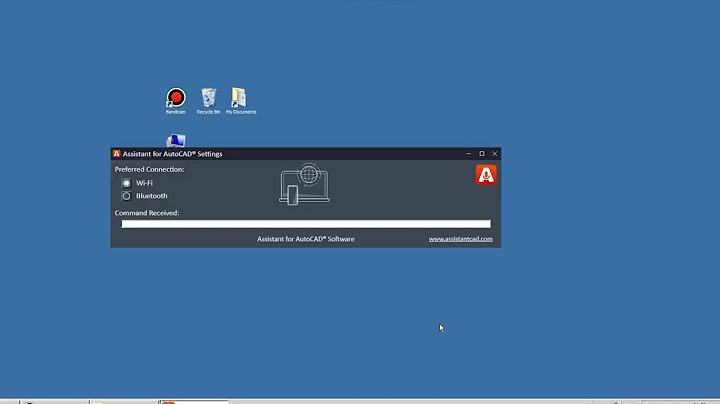Writing good code is an art. You can easily debug programs and increase your productivity if you write clean, readable, and maintainable code. It will also help your successors to read and understand your code quickly and maintain it. In this article, we will discuss some of the best coding practices that you can use in 2023 to write clean code. Why Should You Follow Best Coding Practices?Following best coding practices to write clean, efficient, and maintainable code has many benefits. Let us discuss some of them. - Improved readability and maintainability of code: If you write clean, readable, and maintainable code, anyone can read and understand it. This will help your team maintain your code even if you aren’t present there.
- Reduced errors and bugs: If you follow the best coding practices and naming conventions, your code will have fewer errors and bugs. For example, if you don’t follow the standard naming conventions in python, you may name a variable
full_name or fullName. Suppose that you have created the variable full_name and mistakenly use the name fullName for the same variable, the program will run into an error. On the other hand, if you are following the best coding practices, you will always use the same naming convention. Hence, your code will not run into errors. - Improved Performance: Writing code with best practices can help you increase the efficiency of your code. For example, instead of iterating over a column of pandas dataframe in python to find the sum of all the values, you can use the aggregate
sum() function. Using an aggregate function will improve the performance of your code manifolds. Similarly, If you use a floating point number instead of an integer, it takes more computation time and storage. Hence, using appropriate data types for variables can help you improve the performance of your code too. - Increased collaboration: If everyone in your team writes clean and readable code with proper conventions, it will become very easier for you all to collaborate. You can even work on a team member’s part in their absence just by going through the code once. So, following best practices for coding increases collaboration significantly.
- Reduced Development Time: Following best coding practices will lead to fewer errors and bugs. It will also increase collaboration and decrease the time spent on debugging. Hence, the total time taken in the development of the entire project will reduce.
- Monetary benefits: Reduced development time and increased efficiency of the code will save you thousands of dollars in the form of developer salaries. After finishing a project quickly, they can be assigned new projects. This will help your organization generate more revenue and hence more bonuses and salary hikes for the developers. So, following best coding practices has the ability to help you earn more too.
- Enhanced scalability: Following best practices for programming can also help you write scalable code. For instance, if you write code with high cohesion and less coupling, and follow object-oriented programming methodology to create independent software components for each activity, you can efficiently scale your code.
Looking at the benefits of following best practices for programming, you might want to consider following them while writing code. Let us discuss some of the best coding practices that you can start using in 2023 and beyond. Suggested Reading: C# vs Python: Performance, Syntax, and Applicability 12 Best Coding Practices for You to FollowI have listed 12 best coding practices that you can start using in 2023 and beyond. This is not an exhaustive list and there can be more additions to it. However, the following are some of the best practices for programming in my experience. - Write clear and readable code: You should write code that is easy to understand, follow and maintain. You can do it by using meaningful variable and function names, using appropriate indentation, and following coding conventions and standards.
- Use the latest tools and technologies: You should keep up to date with the latest advancements in programming languages, frameworks, libraries, and tools to improve efficiency, security, and performance. Using the latest tools will help you write code better and faster.
- Emphasize code quality: You can use static code analysis tools and automated testing to improve code quality and catch bugs early in the development cycle. This will help you avoid any unwanted consequences in the later stages of software development. Debugging errors in the later stages of development is a tedious task because each error can have an avalanche effect and finding the original error might be hard for you and your team.
- Use version control systems: Ask your team to use version control systems such as Git to track changes, collaborate with others, and roll back to previous versions of the code if necessary. This will help you collaborate efficiently with other team members.
- Write and maintain comprehensive documentation: You should always create documentation for your software project. You need to provide clear and accurate documentation for the code, including comments and user guides, to facilitate understanding and maintenance. This documentation will help the developers to understand the code better if they run into problems in the future.
- Implement error and exception handling: A program without a proper exception-handling mechanism is a ticking time bomb. You should always analyze the corner cases and implement the code to catch and handle errors and exceptions in a graceful way. This will help you to prevent crashes in the application and improve user experience.
- Follow established coding conventions and standards: You should adhere to established coding conventions and standards, such as PEP 8 for Python and Java Code Conventions for Java, to improve code readability and maintainability.
- Write test cases and test your code: You should write test cases to test different scenarios and edge cases. Then, you need to perform tests to ensure that the code is working as expected before deploying it to the production environment.
- Keep your code modular and reusable: Breaking your code into smaller, reusable modules makes it more maintainable and easier to understand. For example, you can convert repetitive code into a function and define proper classes to modularize code. This will help you write code faster.
- Constantly review and refactor your code: Regularly review and refactor your code to improve its performance, maintainability, and scalability. What you have written today might look inefficient to you if you learn advanced approaches to code in the future. So, you should refactor the old code using your learnings. This will help keep your code efficient and updated.
- Keep learning and stay updated with industry developments: Continuously learning new technologies, methodologies, and best practices will help you improve your skills and stay relevant in the industry. This will also help you gain promotions and hikes very quickly and will keep you ahead of the competition.
- Focus on security: Cyber attacks are inevitable. Therefore, you should try to write secure code to prevent malicious attacks and data breaches by using secure coding practices and testing for vulnerabilities. This will help your organization save millions of dollars that might go towards paying ransom for the attackers. And remember, this cost is in addition to the economic and reputation losses that will happen due to the attack.
Suggested Reading: C Sharp and Sequel Programming Languages ConclusionIn this article, we have discussed the best coding practices that you can start using in 2023 and beyond. All these techniques are general ones that you can use while coding in any language. If you want to learn the best coding practices in specific languages, you can read this article on best coding practices in java. To learn more about programming, you can read this article on C# vs Java. You might also like this article on whether should I learn SQL or python first. Disclosure of Material Connection: Some of the links in the post above are “affiliate links.” This means if you click on the link and purchase the item, I will receive an affiliate commission. Regardless, I only recommend products or services I use personally and believe will add value to my readers. What are the coding standards in Java?Layout. What is best practices Java?Use Proper Naming Conventions. Avoid Creating Unnecessary Objects. Create Proper Source File Structure. Comment on the Code Properly. Avoid Too Many Parameters in Any Method. 10 Websites for Practicing Java Coding Interview Problems. CareerCup. ... . Code Career Blog. ... . Java67. ... . TopCoder. ... . Spoj. ... . CodeChef. ... . 10 Best Coding and Programming Interview Books in 2023. My favorite books to crack any coding or programming job interviews in 2023. ... . 10 REST API BEST PRACTICES. Use descriptive and meaningful resource names-. What is the best coding standard?There are a few best practices when it comes to learning how to code, and they center around these 7 concepts:. Variable naming conventions.. Class and function naming conventions.. Clear and concise comments.. Indentations.. Portability.. Reusability and scalability.. Testing.. |




















